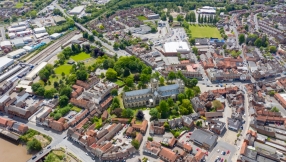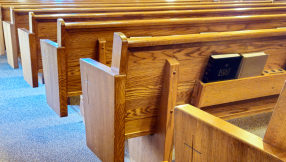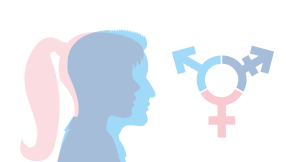'We are the forgotten church,' say Palestinian pastors
“Because of the economic pressures, many Christian families when they get the chance, are leaving for a better life abroad,” Pastor Jack Sara, senior pastor of the Jerusalem Alliance Church in Old City Jerusalem, told Release International.
There are no more than 5,000 evangelical Christians remaining in the West Bank and Gaza, revealed a new report by Release International, a UK-based organisation serving the persecuted church around the world.
Remaining Christians face pressure from all sides including a hostile Muslim culture, continuing tensions over the disputed territories, the recent offensive on Gaza, and ongoing economic distress, the ministry reports.
“We are the forgotten church,” laments one Palestinian pastor to Release International.
“No,” corrects another pastor, “We are not the forgotten church; we are the beaten and forgotten church.”
The sense of hopelessness fuels the mass exodus of evangelical Christians out of the Occupied Palestinian Territories (OPT).
According to the European Center for Law and Justice (ECLJ), Bethlehem and Nazareth have “experienced a dramatic exodus of Christians in recent years”. The ECLJ also recognised the “significant difficulties” faced by the Christian minority in the Holy Land.
“The exodus of these Christians is not only a human and cultural tragedy but it is also a loss for the Palestinian population and for the stability of the area,” the ECLJ states.
For Palestinian Christians in the West Bank, the daily pressure is often harder to deal with than the occasional physical violence.
“I’ve been beaten up after preaching,” says Steve Khoury, a young ordained Arab minister, “and, as painful as that is physically, you get over it."
“What’s worse is the day-to-day pressure faced by Christians from all backgrounds,” says Khoury.
Khoury’s father, Naim, is the pastor at the First Baptist Church in Bethlehem in the West Bank. Naim Khoury told Release that 80 per cent of the people in his church are unemployed and there is no social security or health insurance even though some members need daily medicines they cannot afford.
But life is particularly hard for Muslim background believers who are likely to be disowned by their families and are left with nothing. The church, which is under financial strain itself, tries to support the new converts.
Messianic Jews in Israel also report being cut off by their families. And, surprisingly, Orthodox Christians who become evangelical Christians say they have experienced persecution.
One couple from a Greek Orthodox background say their extended family considers their move to evangelical Christianity a betrayal. They have suffered from family tension as well as employment problems related to the change in their faith tradition.
Local boys have also hit the couple's young son and called him “Christian” as if it was an insult, said the man, whose real name was withheld. He said the church they attend has supported the couple so they can send their children to an independent school. Their children cannot attend the Orthodox Church’s school because they are not baptised into the Orthodox Church and the state schools are Muslims.
Muslims (mainly Sunni) make up 83 per cent of the 4.1 million population in the Occupied Palestinian Territories. Jews make up 12 per cent and Christians and others account for five per cent.
Dr Justus Weiner, a Scholar in Residence at the Jerusalem Center for Public Affairs, said in a lecture in 2007 that the overall Christian population is less than 1.7 per cent of the total population. He highlighted the dismal drop in the Christian population by pointing out that in Bethlehem during the 1940s Christians made up 75 to 80 per cent of the population, which has now fallen to under 12 per cent.
Release International is urging Christians to pray for employment for Palestinian Christians, unity among evangelical churches and good relations between denominations, protection for Palestinian Christians in the West Bank and Gaza and for Messianic Jews in Israel, and restoration of a sense of hope.
The organisation also urges believers to pray for women from Muslim backgrounds who convert to Christianity as they are unable to change their ID documents to reflect their new faith and are therefore restricted in their ability to marry Christians.













